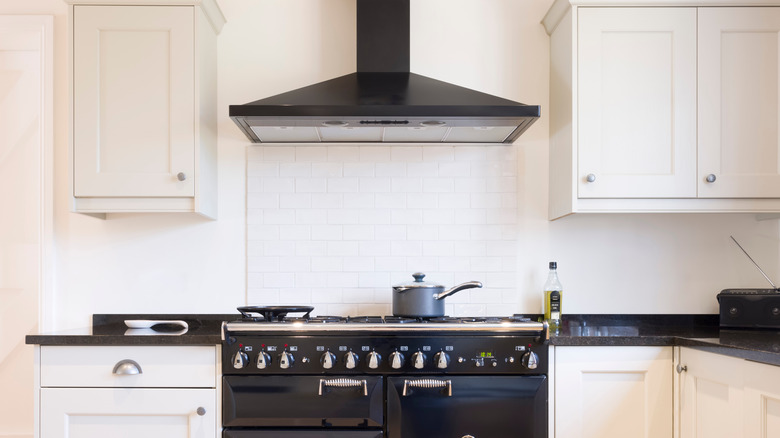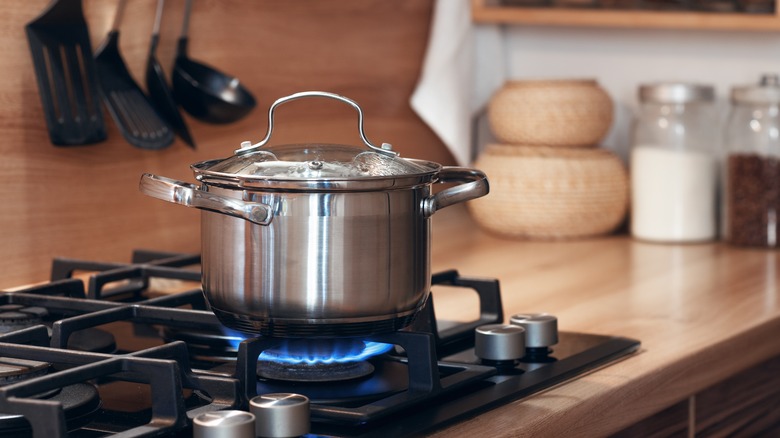Your Gas Stove's Range Hood Plays A Bigger Role Than You Might Expect
There are certain scenarios when you might reach over and flip on your range hood. Maybe it's the middle of summer and you want to whisk the heat away, or perhaps you're cooking something pungent and don't want the smell to carry to the rest of the house. However, if you have a gas stove it's important to note that your oven hood plays a bigger role than you might think.
Whether you're boiling, frying, sautéing, or simmering, it's important to turn on your hood to carry away the byproducts of combustion and improve the air quality in your kitchen. When natural gas or propane burns in a gas stove, it releases harmful pollutants such as carbon monoxide, nitrogen dioxide, and VOCs like formaldehyde. These gases can hurt your health and linger over your food, but thankfully the hood vent can remove them with just a press of a button.
What to do if you don't have an oven hood
Does a gas stove really need to be vented? Chances are you have lived in an apartment where the gas range didn't have an accompanying hood and you left your lease unscathed. While it's true that the range releases a small amount of contaminants at a time, they can linger and eventually build up to a harmful amount. Just because you open a window doesn't mean VOCs disappear — formaldehyde and carbon dioxide can linger for weeks in your kitchen.
If you don't have a range hood and can't get one, there are ways you can minimize the presence of VOCs. In addition to opening windows and doors, increase ventilation in the room by turning on air purifiers and placing fans near windows to create cross-ventilation. You can also try using lower heat settings to minimize combustion byproducts and ensure your flames never gets too big. While it's best to have a range hood on during the entire time you're cooking, these methods will help if you can't access one in the near future.

